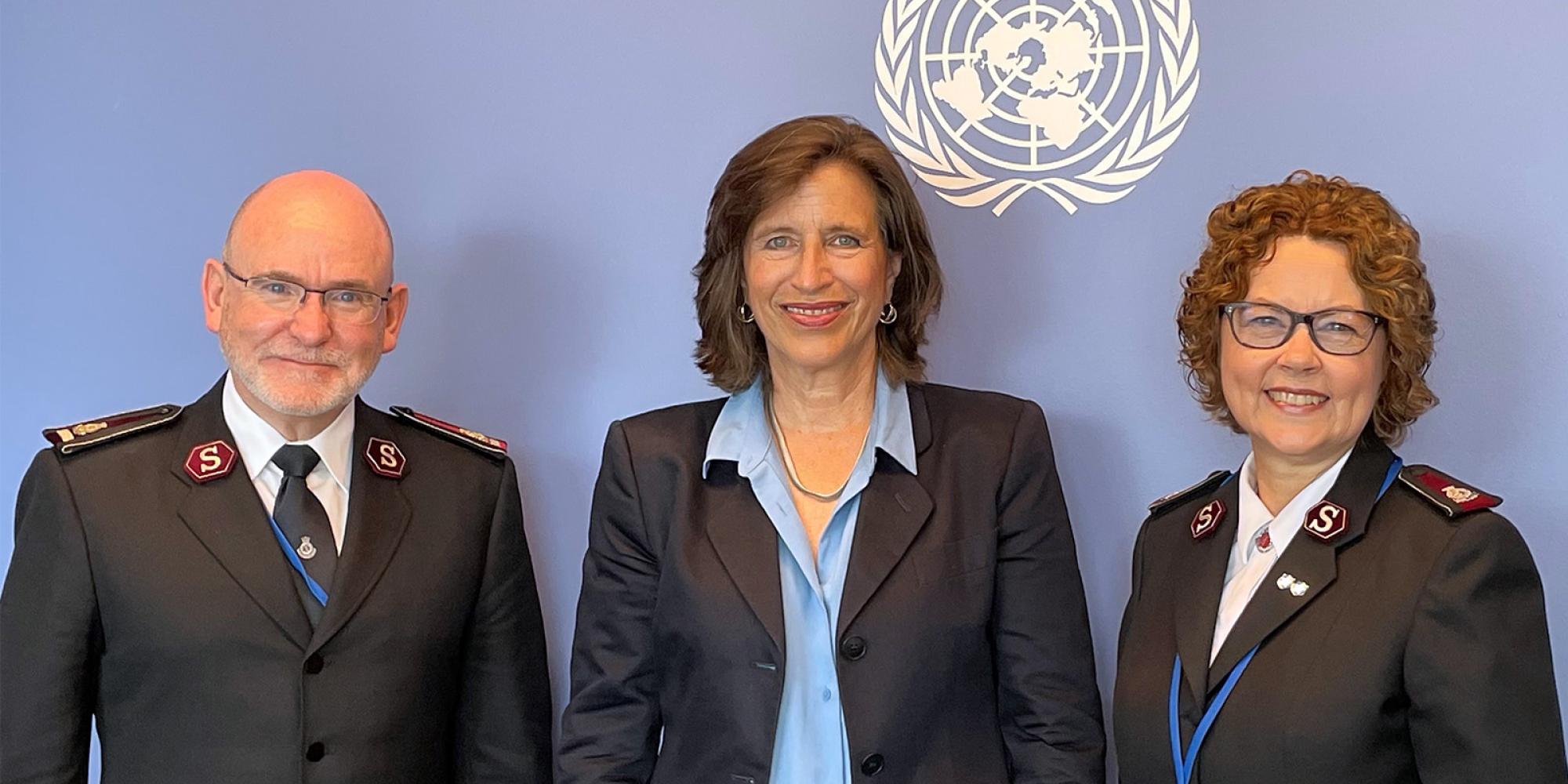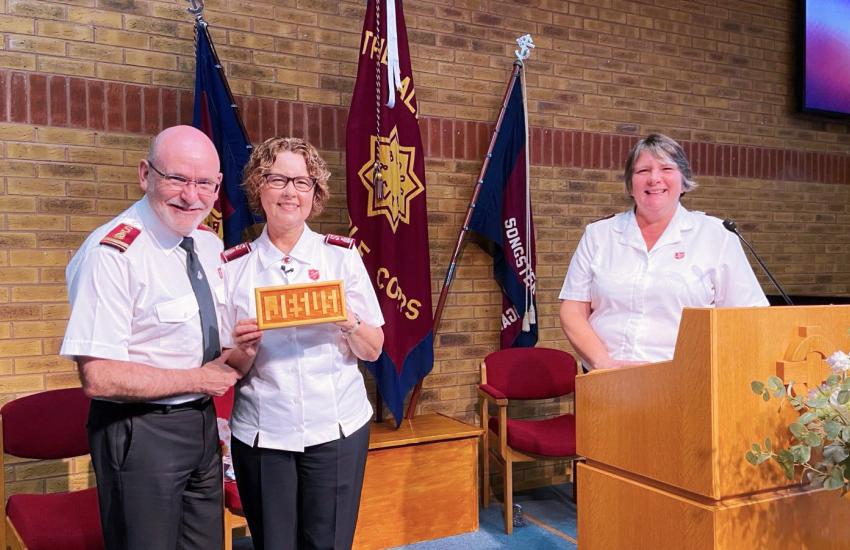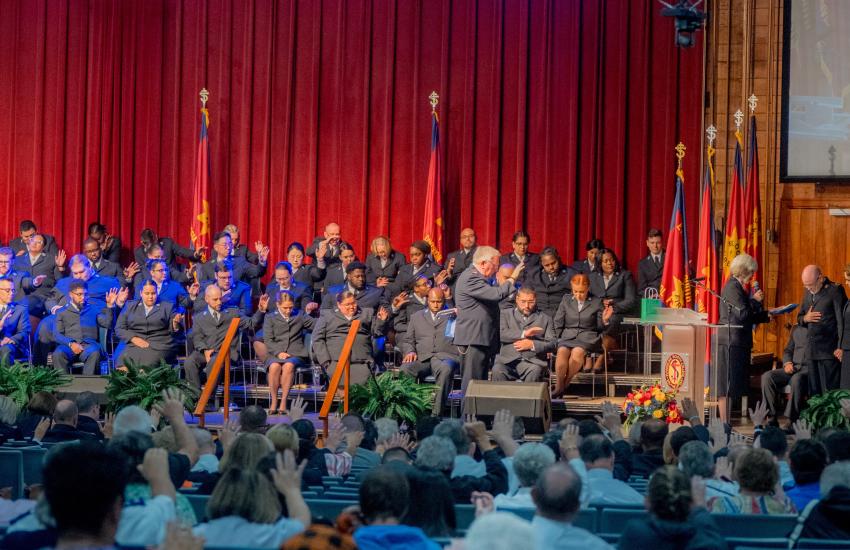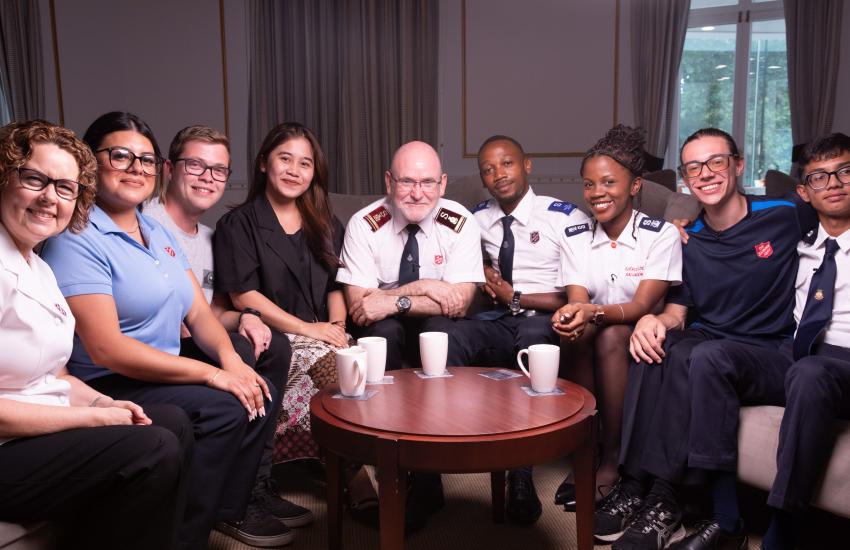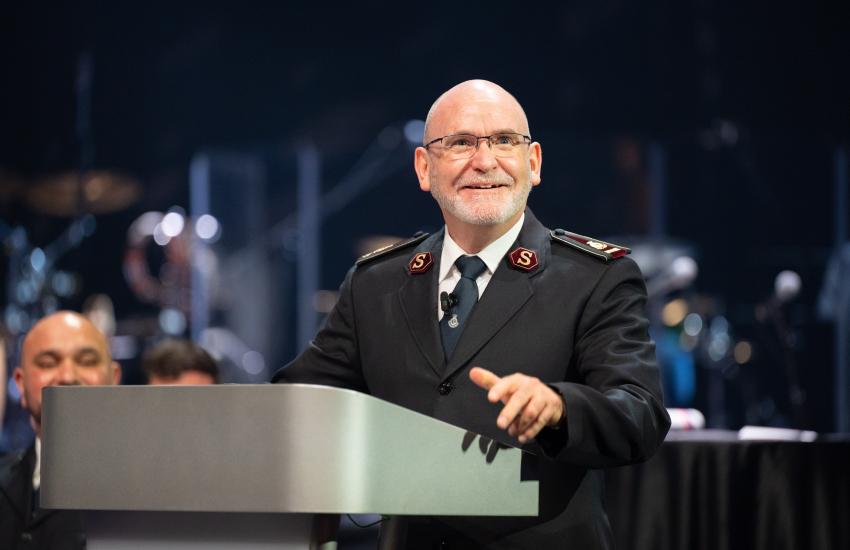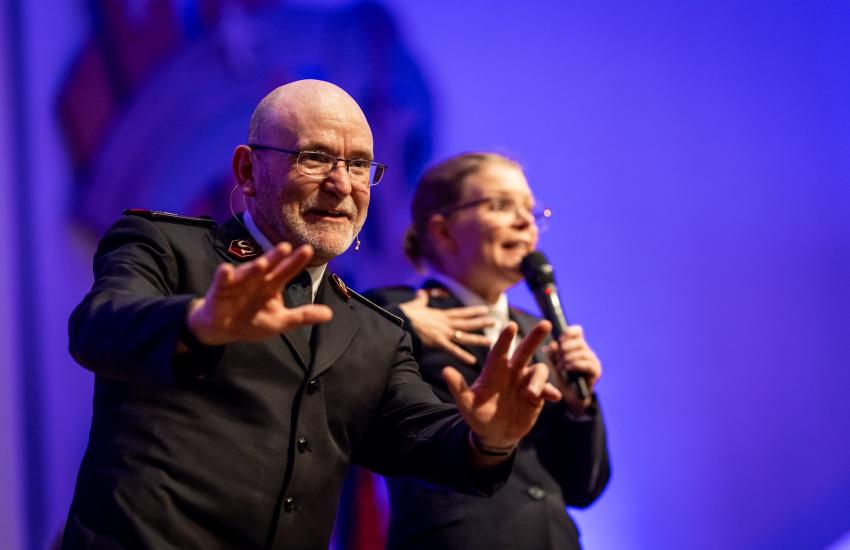General Lyndon Buckingham and Commissioner Bronwyn Buckingham (World President of Women’s Ministries) made their first visit to the United Nations (UN) in New York, USA, for meetings between 21-25 July.
Accompanied by Colonels Ian and Wendy Swan (Directors of the International Social Justice Commission (ISJC)) and Major Victoria Edmonds (ISJC Senior UN Representative), the meetings marked the first occasion on which a Salvation Army General in office has met with high-level UN officials since the ISJC was established in July 2007.
Support and partnership
In a meeting with Ms Melissa Fleming, Under-Secretary-General for UN Global Communications (reporting directly to the UN Secretary-General), discussions highlighted the current state of the world and how The Salvation Army might continue to support and partner with the 193 UN member states in caring for the world’s poorest and marginalised. Focus was given to gender-based violence, domestic abuse, the girl child, poverty alleviation, and migration and displaced peoples – areas of mission and ministry dear to Salvation Army community engagement.
The importance of interreligious and multi-faith dialogue was reinforced when the General met with Rabbi Burton Visotzky, Chair of Interfaith Dialogue within the UN body Religions for Peace, and with Archbishop Gabriele Caccia, Permanent Observer of the Holy See to the United Nations, identifying effective partnerships and common platforms for faith-based organisations.
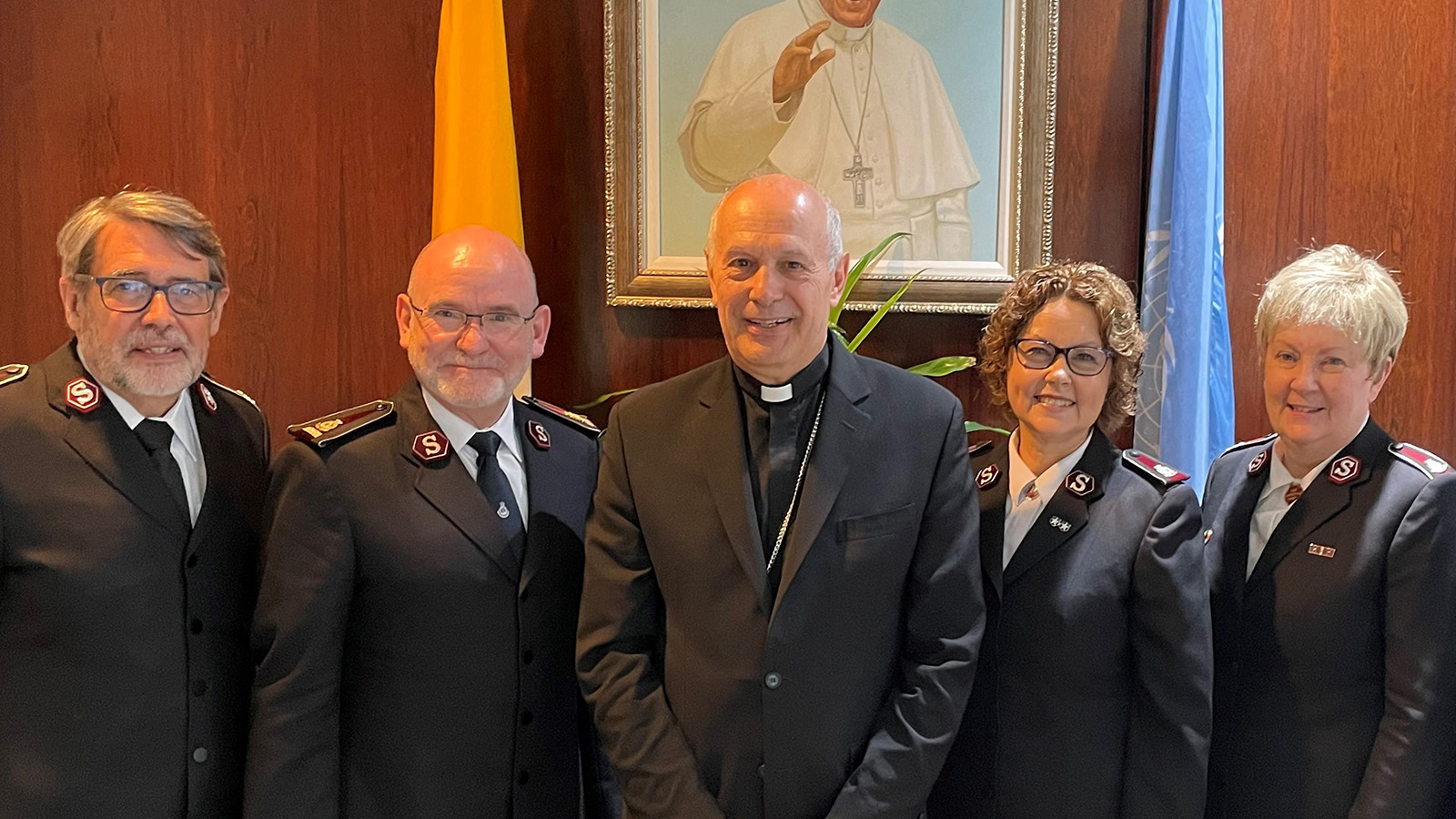
Common concerns and challenges
When Commissioner Bronwyn Buckingham met with Ms Lauren Rumble, Director for Gender Equality of the UN Children’s Fund (UNICEF), they shared common concerns and challenges of young adolescent women (aged 10-19) around the globe. The assembled UNICEF team identified The Salvation Army’s strength in front line community work and expressed interest in partnering with the Army in a number of initiatives.
These meetings with high-level UN representatives continue to solidify the importance of The Salvation Army’s contribution in global settings, as well as confirming the need for the creation of a body of work that will contribute to world bodies as they make life-altering decisions for the welfare and flourishing of God’s people and creation.
